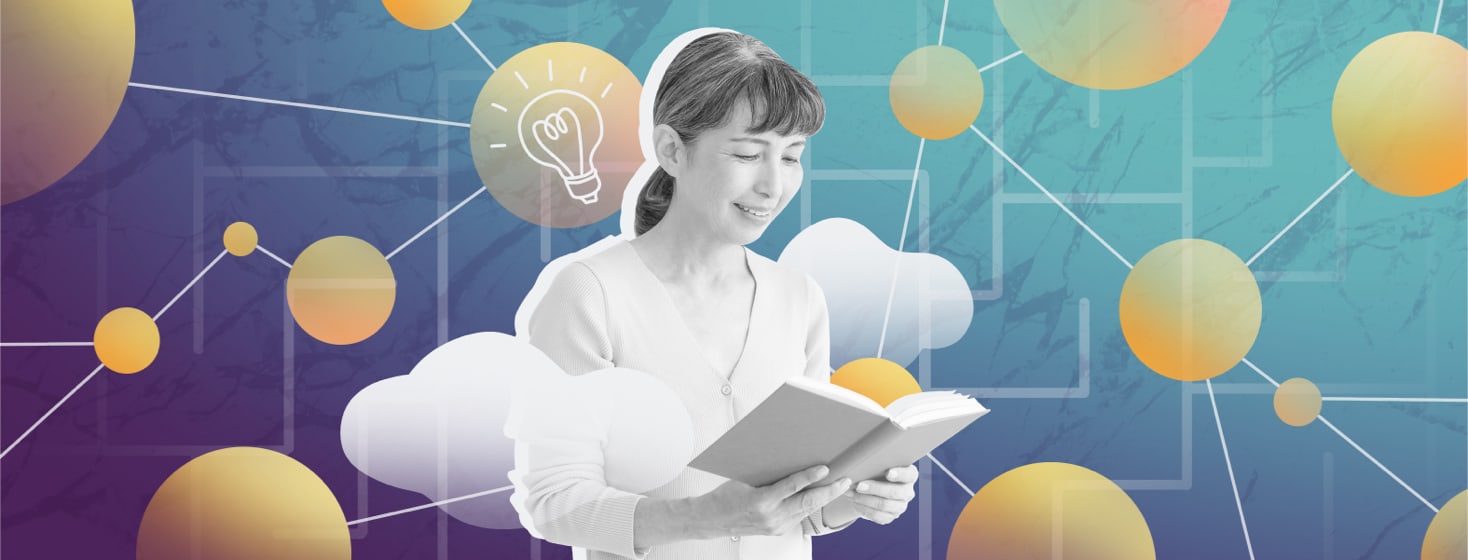How Learning About Health Literacy Changed the Way I Advocate for Myself and Others
For most of my life, navigating the healthcare system felt like I was lost in a foreign country. Medical terms flew over my head. All of the discharge instructions seemed like crazy cryptic codes. My doctor appointments left me more confused than informed. It wasn't until I was diagnosed with rheumatoid arthritis and lupus that I truly understood the importance of health literacy.
The power of understanding
We’ve all done it, sat in a doctor's office scared. First, bombarded with medical jargon. Then feeling completely lost. All while sitting struggling to decipher medication instructions or follow a complex treatment plan. Let me tell you, you're not alone. Many people face challenges navigating the confusing world of healthcare due to limited health literacy.
What is health literacy?
Simply put, health literacy is the ability to access, understand, and use health information to make informed decisions about your health. It empowers us to take an active role in our healthcare. Health literacy can foster better communication with providers and ultimately, lead to improved health outcomes.
Why is health literacy important?
Think about it: how can we participate actively in our own healthcare if we don't understand the information being presented? Consequently, limited health literacy can lead to a cascade of negative consequences. Patients might struggle to follow treatment plans or even experience medication errors. Under those circumstance they may even avoid seeking care altogether. This can ultimately result in poorer health outcomes and increased healthcare costs.
Furthermore, I have learned that health literacy is not just about individual empowerment. It's also about promoting equity within the healthcare system. Marginalized communities, including those with limited English proficiency or low socioeconomic status, often face barriers to accessing and understanding health information.
The benefits of health literacy
As I dealt with my own confusion, I realized being more health informed can foster a better healthcare environment. An environment where a person could feel empowered, informed, and respected. Understanding our health conditions, treatment options, and rights empowers us to advocate for ourselves and make decisions aligned with our values and preferences.
Empowering myself
I was on a mission to educate myself. Beginning with research on credible health websites and organizations. In addition, I spoke openly and honestly with my doctor. Asking questions and requesting simpler explanations helped me understand. Slowly, the fog began to lift. Understanding our health conditions, treatment options, and rights equips us to advocate for ourselves. It also enables us to make decisions aligned with our values and preferences.
Spreading the message
My experience has given me a passion to advocate for health literacy initiatives. I believe that everyone deserves to feel empowered in their healthcare journey. Here are some ways we can all contribute:
- Healthcare providers: Use plain language, explain medical terms, encourage questions, and provide clear written instructions.
- Government agencies: Fund health literacy programs, create accessible health information resources, and promote public awareness campaigns.
- Individuals:Take initiative to educate yourself, utilize credible health resources, and actively participate in discussions with healthcare providers.
Taking charge of my health literacy
While these initiatives are crucial, I know I also have the power to improve my health literacy. I have control over what I do for myself. So, I did things to help improve my health literacy.
- First, I asked questions. I didn’t hesitate to ask my doctors and healthcare providers to clarify information. As a result, the questions led to more clarity and comfort in the visits.
- Second, I took notes. During my appointments I wrote down key points and instructions. This helped keep me on track.
- Third, I did my research. I used credible online resources like government health websites and reputable medical organizations' websites. In fact, I called local doctors and asked about my condition to get different views.
- Finally, I wasn’t afraid to say no. If I needed more time to process information or discuss options with my family, I stated that. I found this was a way to feel empowered on my journey. As a result, this showed my treatment team that I was not alone in my health decisions.
Ultimately, I began to take more control over what I did for myself on my health journey. Then I began to educate those within my patient advocacy to do the same.
In conclusion, better health literacy is collaborative. By working together, healthcare providers, policymakers and individuals can work to create a healthcare system where we all feel empowered. A healthcare system that is easy to understand and navigate. With health literacy we can bridge the gap between patients and providers. At the same time, we can empower individuals to take control of their health. This will ultimately improve health outcomes all around.
How are you adding health literacy in your patient advocacy? Let me know in the comments.

Join the conversation